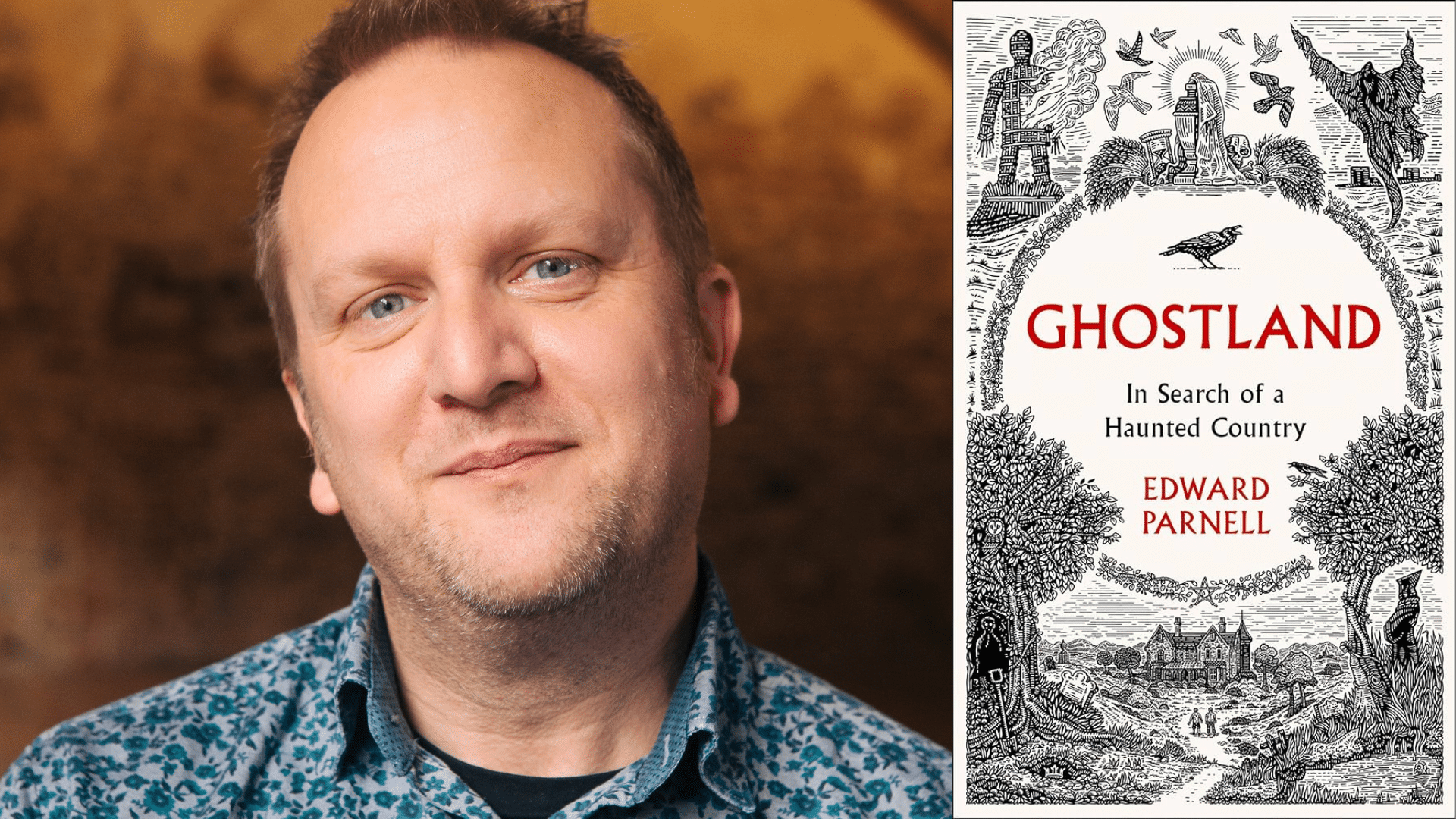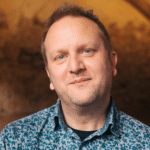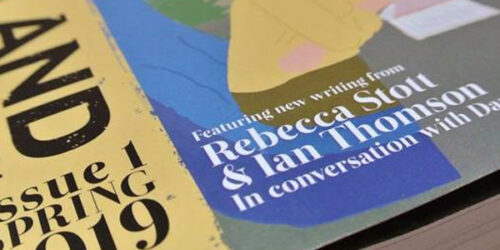
Ghostland is my first (and to date only!) creative non-fiction book; I’ve also written a novel, The Listeners, and contributed to various wildlife/ornithological titles in the more-distant past.
Ghostland itself is something of an amalgam of a book, being a mixture of several genres. (A bookseller once told me that having a hard-to-classify title is a good thing for an author, as shops may not know where to place it so might end up putting it out on one of the coveted table spots; I’m not sure, in practice, whether this has actually been the case for Ghostland – and even if true it’s certainly not a great reason on its own for embarking on a mixed-genre book, but still…) Anyway, Ghostland could be said to be in part the following:
- TRAVEL WRITING
- NATURE WRITING
- MEMOIR
- CULTURAL CRITICISM
As a result this obviously meant that there was lots of varied research that I had to carry out, involving (among other things) visiting various locations around the UK, reading a lot of books, and watching a great amount of films and old television programmes. From a fairly early point in my research, however, I made a conscious decision that I wasn’t going to interview any of the writers who were to feature and were still around (most of the figures I concentrated on were from the first half of the 20th-century, so for them that wasn’t, in any case, an option); primarily I wanted the book to be about my experiences and my reaction to their works.
Learning lessons from my fiction writing
As I mentioned, I’d written an earlier novel, The Listeners, a dark, rather gothic work set in a small village in the wilds of west Norfolk in May 1940, told from the first-person standpoint of various narrators. The way I tried to keep the narrative going in that book – to always be building towards an end point and to keep a strong feeling of ongoing suspense, while maintaining a sense of narrative and a logic – was something I wanted to replicate in this very different non-fiction book when I started to work on Ghostland.
So to do this I developed a kind of modus operandi that’s embodied in the Victorian/Edwardian ghost story writer M. R. James’s quote for how the ghost story should work (James also happens to be a key figure in my book):
‘Let us, then, be introduced to the actors in a placid way; let us see them going about their ordinary business, undisturbed by forebodings, pleased with their surroundings; and into this calm environment let the ominous thing put out its head, unobtrusively at first, and then more insistently, until it holds the stage.’
- R. JAMES, introduction ‘Ghosts and Marvels’, Oxford, 1924
This ethos played into the structure of Ghostland and became key to how I organised the material and the journey that I went on in the book.
How did I knit together those disparate elements?
I’m not sure I thought too consciously about that while I was writing about it, though I may be doing myself a disservice. I was writing about the personal, so those different elements were all connected because they were so important to me: I didn’t worry too much about whether another audience would share my interests, as I decided the only audience I could safely hope to please was myself!
However, when it came to the editing process I ended up removing more of the nature writing material, because I thought that, on balance, there was a little too much of it in the first draft; I wanted the wildlife stuff to be supplementary and not overpowering. That really was one of the biggest challenges – trying to balance those different elements. The sense of working towards an endpoint, though, of letting the ominous thing gradually be revealed, was increasingly present as I progressed further through the book – which is something that anchored me and really helped with the writing – so from an early point in the process I knew which chapters (and their associated locations/themes) were going to be the ones to carry more emotional weight and feature towards the climax of Ghostland. Those kind of structural challenges are probably the biggest ones we all face as writers when starting upon a new book-length project.
Some things writing both a novel and a non-fiction book have taught me
- There’s not much ‘muscle memory’ from previous books. Each project seems like a first
- After you’ve finished you wonder how you managed to do it (or wonder why it’s so shoddy on bad days)
- Sitting in a room all day on your own trying to write a book is tough
- Fiction allows you a bit more freedom in that the facts don’t have to pen you in quite so firmly (though of course to an extent they still can)
The facts though (when writing non-fiction), and the structure they can offer, may just make the writing easier…
 Edward Parnell has an MA in Creative Writing from the University of East Anglia. He’s been the recipient of an Escalator Award from the National Centre for Writing, and has taught Creative Non-Fiction with us since 2020. His second book, Ghostland: In Search of a Haunted Country, a work of narrative non-fiction was published in hardback in the UK during October 2019 by William Collins, and subsequently released in the UK and US in paperback in October 2020. The book was shortlisted for the PEN Ackerley Prize 2020 for memoir and autobiography.
Edward Parnell has an MA in Creative Writing from the University of East Anglia. He’s been the recipient of an Escalator Award from the National Centre for Writing, and has taught Creative Non-Fiction with us since 2020. His second book, Ghostland: In Search of a Haunted Country, a work of narrative non-fiction was published in hardback in the UK during October 2019 by William Collins, and subsequently released in the UK and US in paperback in October 2020. The book was shortlisted for the PEN Ackerley Prize 2020 for memoir and autobiography.
Edward is also an NCW Academy online course tutor, and will be leading our upcoming beginners’ creative non-fiction course. Find out more →
You may also like...
10 signposts on the way to a successful writing life
In this article, writer and NCW Academy tutor Emmanuel Iduma shares ten key indicators that you’re on the right track for a successful writing journey, and the questions you should ask yourself along the way.

15th January 2024
17 tips for writing creative non-fiction
Writers and editors give their advice on writing non-fiction and tackling its challenges.

30th July 2022
An introduction to creative non-fiction
Five seminal books chosen by Hinterland co-editor Freya Dean

17th June 2019






